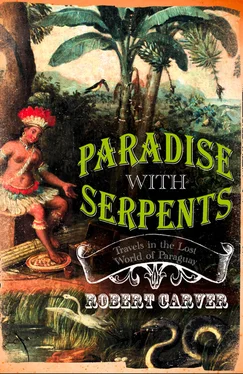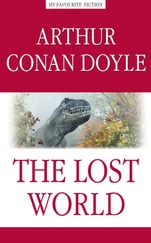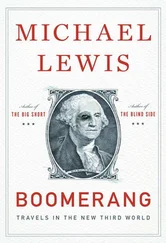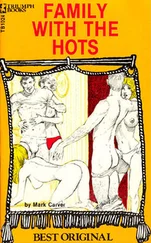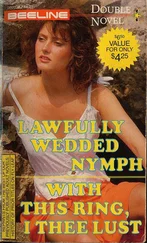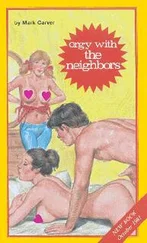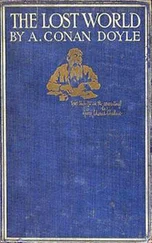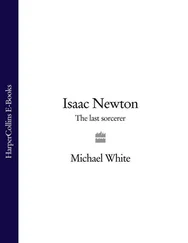Now at last, it seemed, the country had won an international accolade. According to Transparency International, Paraguay was the third most corrupt country in the world, after Bangladesh and Nigeria, and the most corrupt in the Americas, ahead even of Haiti and Colombia. Less corrupt than Paraguay were Angola, Azerbaijan, Uganda, Cameroon and Kazakhstan, among others. The least corrupt countries were Finland, Denmark and New Zealand, in that order. Corruption in Paraguay was not individual or sporadic, it was institutional and endemic. Nothing could be done without bribes at every level, from the simple policeman manning a roadblock to a cabinet minister approving a government contract. Anyone in a position to milk money from the system did so. The country’s economic plight was spelled out in its depressing list of negative statistics. There was a US$2,200 million external debt, the interest on which could not be paid, and a US$305,000 million budget deficit. Out of a total population of 6 million, 200,000 people were employed in the public sector, most of them unpaid for months or even years; 15.3% of the population was ‘openly employed’, 22% officially unemployed. There was an 8% illiteracy rate and 81% of the population had no health insurance. There was, of course, no government health service whatsoever; 33.7% of the population fell below the official poverty line of $25 a week and 16% (900,000) existed in extreme poverty, with no source of formal income at all. The most startling imbalance was the tiny proportion of public service workers – less than 3.3% of the population. In Welfare State Europe this figure stood at 45% or 50% of the population. But to employ so many people in the public services you had to tax people heavily – Europeans paid more than 50% of their incomes in direct taxes, pension levies and national insurance contributions, and then again on sales taxes, VAT and indirect taxes on such things as fuel, tobacco and alcohol. In Paraguay there was virtually no tax at all, which was what made it such a paradise for the rich. Huge tracts of Paraguay’s real economy were illegal – smuggling, drug processing and export, arms trafficking, fake cigarette manufacture and sale, car theft, cattle rustling and extortion, money laundering and the government cheating on contracts. The government was simply bypassed by private enterprise – criminal and legal – and the administration was too feeble and corrupt to do anything about it. Paraguay was a classic Third World kleptocracy, bankrupt but enormously wealthy, all the money kept out of the country in hidden bank accounts in untraceable offshore havens. When Belgrade was being bombed by NATO and accused of alleged sanctions-busting during the Kosovo war, the then President of Serbia, Slobodan Miloševic, commented that they really ought to be bombing the Cayman Islands, as that was where all the sanctions-busting was actually going on. Similarly, it would be futile trying to chase the missing billions in Paraguay as it was all hidden offshore.
The blame for the ruin of this rich and fertile country was laid squarely at the door of the Colorado Party by local historian Mida Rivarola.
The economic model invented by Stroessner turned a country that had been an exporter of agricultural products into an economy dominated by smuggling, crime and primitive State protectionism. When this model was exposed to more modern economies due to changes in the world it simply collapsed leaving poverty and corruption at every level.
Ultima Hora had produced a crime map of the country – drug smuggling, contraband, cattle rustling, piracy, marijuana cultivation, car theft, highway robbery, banditry, north, south, east and west, the whole of Paraguay was one large crime zone. Only bank robberies were in short supply, for most of the banks had closed, gone bust, or were defended by private security guards who looked like militiamen in flak jackets, armed with bazookas and heavy machine-guns. The streets of Asunción and other provincial cities were, from time to time, full of protesters complaining of all this. Mostly these demonstrations were peaceful, but they seemed to do no good: they belonged to the politics of theatre, the essentially futile statement in noisy collective form that people were unhappy with their lot, with the government, with the facts of Paraguayan life. No one had any answers or even any ideas except to borrow more money from the IMF, or to reimpose a dictatorship under Oviedo which, it was hoped, would at least limit the corruption to the Colonel and his cronies as in the days of Stroessner. The situation was almost beyond analysis, let alone solution. No one even talked of a Castroist, extreme socialist solution. For years young Paraguayans had been sent to Cuba to be trained as doctors. The Cubans hoped to induct them into revolutionary fervour: the opposite had been the result. They had all come back with horror stories of socialism in action. Even the bitterest critics of the Colorado regime admitted that Castroism was a dead loss and a cul de sac. There was no guerrilla movement like the FARC in Colombia, no potential President Chavez, a nativist anti-gringo rabble rouser, as in Venezuela. Paraguay was a pirate state, full of pirates, who complained only because the chief pirates were stealing all the booty, and they were getting little or none. The writer Jorge Luis Borges had wondered if his country’s fate might have been better if Argentina had become a British colony after 1820, when the Spanish had been expelled and the River Plate region fell under the economic influence of the British Empire. This reflection was made during the years of the repressive military regime in which everything had gone to the bad. ‘Colonies are so boring, though,’ he had concluded. Better then, in South America, to be theatrically badly governed than boringly well governed.
The great unanswered question hanging over the whole Third World is still the one posed by Goethe: ‘Injustice is preferable to disorder.’ What the colonial world had thrust upon it by the European powers had been injustice and order, which in almost all cases had been replaced upon independence by injustice and disorder. Asked if he thought India would be better governed after the British had left, Gandhi replied, ‘No, it will be worse governed.’ That had been a brave as well as an accurate prediction. A refugee white South African academic, safe in London, had moralized to me that it was ‘essential for Africans to make their own mistakes’ and learn from them, that colonialism only mollycoddled people. He, of course, did not have to suffer the effects of those mistakes, as he had fled, but he was happy to condemn the rest of the continent’s population to the Idi Amins, the Robert Mugabes and the Mobutus, as an inevitable learning curve. With freedom had come disorder, and injustice in another form. A new, native ruling class had formed, corrupt, authoritarian, immune from Western liberal criticism, more oppressive in most cases than the old white supremacists. Most ex-European colonies were in a far worse state than they ever had been under direct colonial rule. The democracies imposed on them by the parting masters had all failed and been replaced by despotism, oligarchy or anarchy. In some cases, after years of fruitless civil wars and disorder, that quintessential postmodern phenomenon, the failed state, had emerged. Paraguay was not yet a failed state, not quite: but it was not far off one.
Walking round Asunción it was evident that the fabric of the city was collapsing: garbage was uncollected, streets and pavements lay broken and unrepaired, buildings were not just unpainted and peeling, but crumbling apart, showing cracks and bulges in the walls. The dead banks, great glass and concrete mausolea, lay silent and empty, front doors chained and padlocked outside, dust and emptiness within. Groups of Indians from the Chaco, or simply homeless, poor people had taken up residence on strips of cardboard in their doorways – shelter at least from the tropical downpours. The local markets had spilled out on to the pavements, and the streets were full of rotting vegetables and fruit. A whole tribe of people lived by scavenging from this bounty. All around the centre of the city vendors had set up shop on the pavements, selling cans of food, bottles of wine, packets of biscuits – all imported. The hotels in the centre of town were completely empty. I went inside to talk to the receptionists who were pretty, smiled a lot, and had time on their hands. They all told the same story: ‘No one comes here now. Before, under Stroessner, there were tourists. Now nothing.’ Cruise ships used to come up the river from Buenos Aires for winter breaks, duty-free shopping expeditions. Now Argentina was broke, and Brazil was in deep trouble, too; no boats with tourists came any more. Asunción had become too dangerous. Right in the centre of town knife-wielding robbers held up buses, one man with a blade at the throat of the driver, the other passing down the bus collecting the passengers’ watches and wallets. On one such attack there had been an army major in uniform on board, a woman. She had had her face slashed. These attacks were happening all the time, every day, not at night in remote suburbs, but in the very centre in broad daylight. People were afraid to use the buses. Taxis were known to be used to kidnap people for ransom, or simply to rob and ‘disappear’ them. Many people walked, even long distances, rather than risk public transport, and I was one of them. The city was just about small enough to get around on foot. Everywhere, though, there was the same atmosphere of suspicion and mistrust. Each small shop had its assistant with a large automatic pistol. When they opened the cash box to get you your change their free hand would be on the pistol, finger curled round the trigger, in case you tried something. There were attempted robberies of these small stores every day, and shoot-outs leading to deaths. Every transaction, however small – a tube of toothpaste, a razor, a comb – involved a handwritten receipt with a carbon copy left in the receipt book: this was so the assistants could not steal from the till. The owners checked the takings against the carbon every evening and made sure the sums tallied. There were no smiles of welcome in any of the shops, rather wary caution or outright hostility.
Читать дальше
